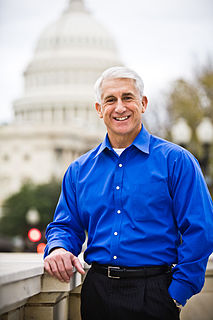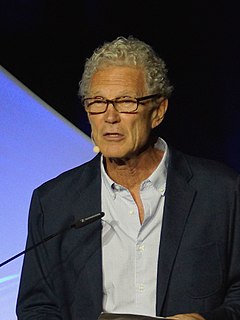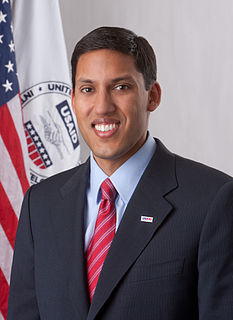A Quote by Alberto Fujimori
We expect that in the next years, the economy will improve. And we expect that extreme poverty will drop from 22 percent to 11 percent by the year 2000.
Related Quotes
The Hispanic population grew by 4.7 percent last year, while blacks expanded by 1.5 percent and whites by a paltry 0.3 percent. Hispanics cast 6 percent of the vote in 1990 and 12 percent in 2000. If their numbers expand at the current pace, they will be up to 18 percent in 2010 and 24 percent in 2020. With one-third of Hispanics voting Republican, they are the jump ball in American politics. As this vote goes, so goes the future.
Only 1 percent of the homosexual population in America will die of old age. The average life expectancy for a homosexual in the United States of America is 43 years of age. A lesbian can only expect to live to be 45 years of age. Homosexuals represent 2 percent of the population, yet today they're carrying 60 percent of the known cases of syphilis.
You have a country that is 20 percent liberal, 40 percent conservative. You have a country where maybe 22 percent have faith in government. If you're a liberal, it's just going to be tough. And you should just expect that. And it's tough for people on the right, too, because they don't get what they want either if you're, say, a libertarian. So, you have got the country sort of against you. And, nevertheless, you have a president.
Economists often talk about the 80/20 Principle, which is the idea that in any situation roughly 80 percent of the “work” will be done by 20 percent of the participants. In most societies, 20 percent of criminals commit 80 percent of crimes. Twenty percent of motorists cause 80 percent of all accidents. Twenty percent of beer drinkers drink 80 percent of all beer. When it comes to epidemics, though, this disproportionality becomes even more extreme: a tiny percentage of people do the majority of the work.
If we continue on the trend we’re on, we can reduce extreme poverty by more than 60 percent-lifting more than 700 million people out of dollar-and-a-quarter a day poverty and back from the brink of hunger and malnutrition. But if we accelerate our progress from 3 percent annual reduction to over 6 percent and focus on key turnarounds in some difficult countries, we could get a 90 percent reduction. We could essentially eliminate dollar-and-a-quarter head count poverty.
One of the most durable successes of the war on poverty was to dramatically reduce the number of elderly poor in America. That's still true today. But, by contrast, child poverty has shot up over the last few years: A decade ago, about 16 percent of children in America were poor - which is a shockingly high percentage. But it's not as shocking as today, when we see that 22 percent of kids live in poverty.
Seventy-five percent of our energy around the earth is being poured into war efforts. Are we servants of death and destruction? This 75 percent of energy could be poured into life, into the service of life-and there will be laughter, and there will be greater health, and there will be more wealth, more food. There will be no poverty. There is no need for poverty to exist at all.
The obsessive focus on a college degree has served neither taxpayers nor students well. Only 35 percent of students starting a four-year degree program will graduate within four years, and less than 60 percent will graduate within six years. Students who haven't graduated within six years probably never will.












































